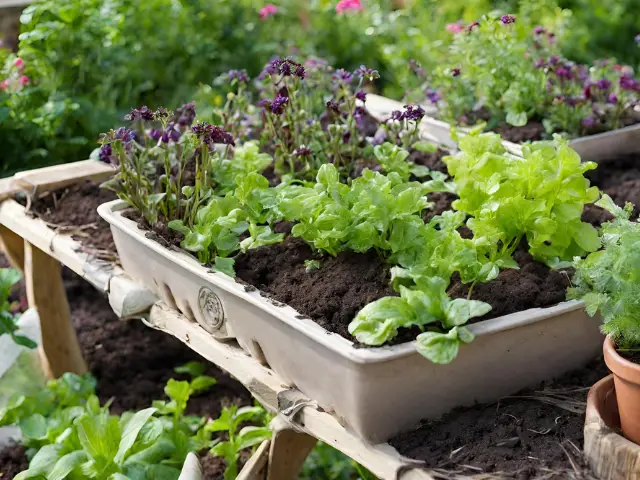Small-Scale Organic Gardening Techniques for Container Plants
Container gardening is a popular and convenient way to grow plants, especially for individuals with limited space or without access to a traditional garden. It allows you to enjoy the benefits of gardening while being able to control the environment and create an aesthetically pleasing display. When it comes to container gardening, organic techniques can help you grow healthy plants that are free from harmful chemicals and pesticides. Here are some small-scale organic gardening techniques specifically designed for container plants.
1. Choosing the Right Containers:
Selecting the right container is essential for successful container gardening. Opt for containers made from materials such as terracotta, clay, or wood as they allow proper air circulation and moisture retention. Avoid plastic containers as they tend to trap heat and may not provide adequate drainage.
2. Soil Composition:
The soil you use in your containers is crucial for the health of your plants. Consider using an organic potting mix that is well-draining but also retains moisture. Homemade compost can be added to enhance soil fertility and improve nutrient availability.
3. Watering:
Proper watering is vital for container plants since they have limited access to water compared to plants in the ground. Ensure your containers have drainage holes at the bottom to prevent waterlogging that can lead to root rot. Depending on the plant’s requirements, water thoroughly when the top inch of soil feels dry but avoid overwatering, which can suffocate roots.
4. Organic Fertilizers:
Organic fertilizers nourish your container plants without introducing harmful chemicals into their environment. Utilize compost tea or seaweed extracts as natural fertilizers rich in essential nutrients like nitrogen, phosphorus, and potassium. You can also consider incorporating slow-release organic fertilizers into the soil mix during planting.
5. Companion Planting:
Companion planting involves growing different plant species together that have symbiotic relationships beneficial to each other’s growth and protection against pests. For example, planting marigolds alongside your vegetable containers can help deter harmful insects naturally.
6. Natural Pest Control:
To avoid pest infestations, encourage beneficial insects like ladybugs and lacewings that feed on common garden pests. Incorporating plants such as lavender, fennel, or dill in your container garden can attract these beneficial insects. If necessary, use organic pest control methods like neem oil or insecticidal soap to combat pests without harming beneficial organisms.
7. Crop Rotation:
Even in a small-scale container garden, rotating your crops annually helps prevent soil nutrient depletion and the buildup of soil-borne diseases. Alternate plant families in different containers each year to ensure optimal plant health.
8. Pruning and Harvesting:
Regular pruning is important for maintaining the shape and size of your container plants. Removing dead or damaged leaves enhances airflow and reduces the risk of fungal diseases. Additionally, timely harvesting encourages continued growth and productivity while preventing overcrowding.
Remember that small-scale organic gardening techniques for container plants require regular observation and care. Monitor your plants for signs of nutrient deficiencies, disease, or pest damage to take prompt action if necessary. With proper attention and organic practices, you can enjoy a bountiful harvest of healthy, vibrant container plants while contributing positively to the environment through sustainable gardening methods.













